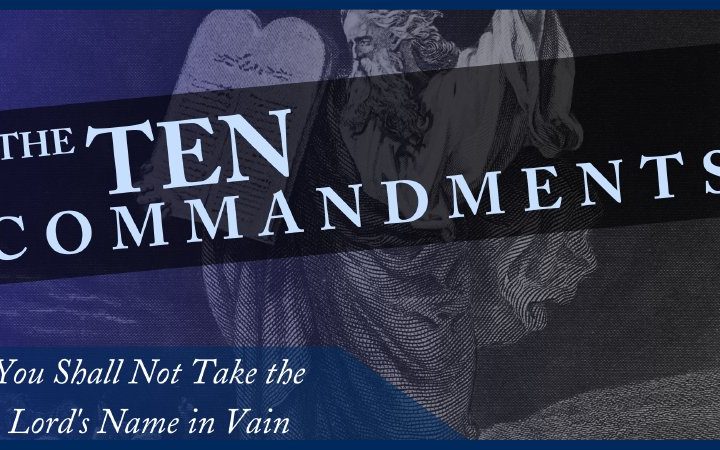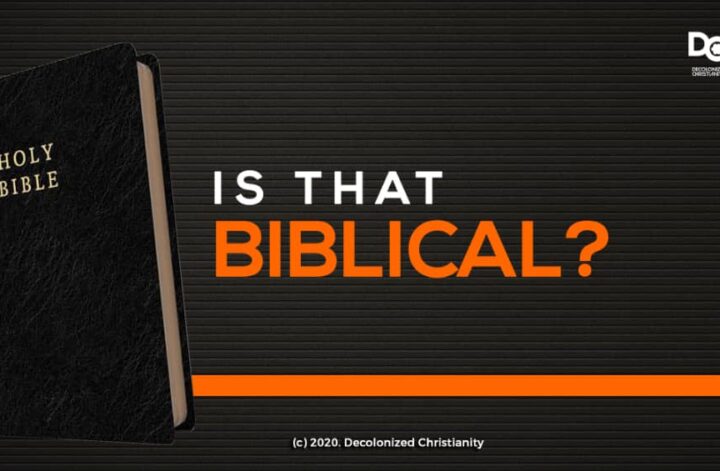Background
I was a faithful tither. Why would anyone not be? I was taught that nobody can out-give God, a teaching that I found rather easy to understand: if the God of the universe, who gives liberally without faults-finding, invites me into a covenant of giving and receiving, I think I would rather oblige. I took it so seriously that on the 22nd day of February 2009, I increased my “tithe” to 20 percent of my income besides offering and other needs the church might have. For me, it was a simple matter of following through with truth wherever it led. Tithing, I was convinced, was an obligation every Christian must despatch. It was obvious that the church needs financial support to thrive and do all the good works. Besides, the Bible was quite clear on this subject; at least, so I thought. I was a member of a great church—one that is a very good ground for training young believers, I should add—which taught based on Luke 6:38 that if one does not give, one would not receive. (Never mind that the context of that verse makes it doubtful that Jesus was talking about giving money or anything material.) The church often would even remind members that it was impossible to love without giving for even God demonstrated his love for humanity by giving Jesus (John 3:16). All of this appeared to be sound doctrine, and I believed it wholeheartedly.
I never cared about how the church spent the tithe and offerings that I gave. It did not matter to me. I did not give because the church asked; I gave because I believed it was the right thing to do. A preacher once shed some light on the matter when he said, “The tithe is not yours; it is God’s.” If a church misused the offerings of the people, God remained just to deal with that. For me, it was sufficient that the Bible admonished—at least, so I thought—me to give my tithes. Years later, things began to change. I presume that my experience was gradually misaligning with what I was taught and believed. In the year 2016, I was without a job for about five months partially because I did not plan well in advance. However, bills did not stop coming in. My wife worked and supported us through those times. At that time, of course, I had no tithes to give. Precisely because of my peculiar situation, I became more aware of the things being said during Tithes and Offering times in the church. The dissonance spread roots.
The year 2016 was also one of harsh economic hardship on the people in my home country. Barely a week passed without someone needing financial help—family, or friends. And these are not trivial or manipulative calls. In fact, the caliber of people reaching out for help speaks volumes about the devastations in the land. What was even sadder was that for most of these people, a mere hundred-dollar gift would go a very long way in giving them palpable hope as they meet basic needs like food and shelter. So, after I got a job and resumed paying my tithes and offerings, I began to be torn apart on the inside. Why so? Well, after I gave tithes along with offerings as well as paid my bills and met the very basic needs of my immediate family, there often was nothing left. Yet, I know it is a Christian duty to take care of one’s own families especially parents (1 Timothy 5:8; Ephesians 6:1). This cognitive dissonance bothered me to the point that I could no longer ignore it. I understood that there was nothing divine about cognitive dissonance. On the contrary, Jesus offers peace (John 14:27). I resolved that if I was being troubled to the point of emotional turmoil, either my current experiences or my beliefs had to be deviant from the truth and needed to be properly aligned. I found it easier to re-assess what I believed about money. It seemed like the Bible teaches that I should pay tithes and offerings on the one hand while admonishing me to take care of family members, friends, widows, and orphans on the other hand. How does one manage these commands when there are not enough resources to go around? I decided to reconsider the best of the arguments for tithing that I have heard, the very ones by which I became a faithful tithing believer.
A Defence of Tithing
Traditionally, it is often stressed that tithing pre-dates the Old Testament. This is critical as that means one cannot just wave it away with the arrival of the New Testament by invoking Hebrews 7:12, for instance. The New Testament is often believed to have superseded the Old Testament having fulfilled it. Hence, if there be anything prior to or outside of the Old Testament, the New Testament may not displace it. Tithing, as practiced today, supposedly derives from Abraham. Abraham and Lot parted ways when the land they resided in could not support both families and possessions. Lot set out towards the east where a raiding army captured him. When Abraham heard of it, he mounted a force to rescue Lot. On his way back from successfully rescuing Lot, Abraham was met by a king of Jerusalem called Melchizedek. This king was a priest-king, and he congratulated as well as pronounced a blessing on Abraham (whose name was Abram at the time). In response, “Abram gave him a tenth of everything” (Genesis 14:20); a tithe is, of course, one-tenth of one’s earnings. This is all that is recorded concerning the encounter of Abraham with Melchizedek in the entire Old Testament. The writer of the New Testament book of Hebrews referenced this encounter once in a way often used to buttress tithing arguments.
Hebrews 7 says much about Melchizedek. In this book, we realize that Melchizedek, like Jesus, is a non-Levite priest (7:3). Clearly, the king was greater than Abraham, and Abraham likely recognized this fact leading to his offering of tithes. Abraham gave tithes to Melchizedek without the king asking; that is, Abraham gave in faith. Believers ought to emulate Abraham’s faith (Galatians 3:9). Christians are descendants of Abraham, the man of faith through whom God sets in motion the redemption and blessing of humanity following Adam’s fall (Galatians 3:14).
Having established Melchizedekian tithing thus, preachers often then routinely use several verses in the Old Testament that talk about tithing. They do this partly because tithing is more elaborated and better developed under the Levitical (and Aaronic) priesthood—that is, the Old Testament—than the Melchizedekian tithing that Christians are supposed to observe; under the Levitical priesthood, Israel gave tithes to support the descendants of Levi who had no other work than serving as priests at the temple. Perhaps the most famous of these chapters would be Malachi chapter 3 where God says to the people that they have robbed Him by not faithfully giving their tithes. Furthermore, God invites them to test Him by giving tithes to see if He will not overwhelm the people with dividends of obedience (8-12). It appears like God watches over the tithes and offerings to bless the people in return.
Let us quickly provide a precis of what has been said so far. Abraham’s act of tithing preceded the Old Testament; that is, it pre-dates Moses. Abraham gave a tithe in faith to Melchizedek, a priest and king like Christ Jesus. Being descendants of Abraham and people of faith (Hebrews 11:6), Christians ought to emulate Abraham in tithing faithfully to their local churches. How well does this defence of tithing hold?




